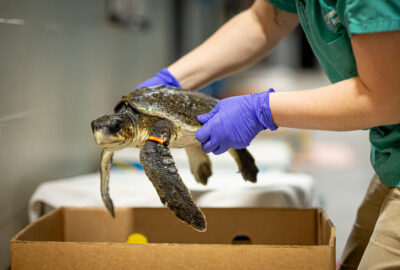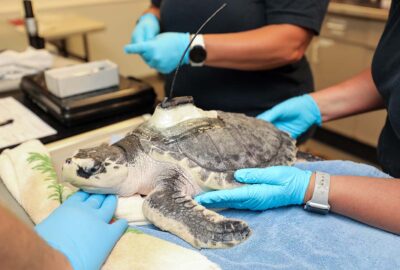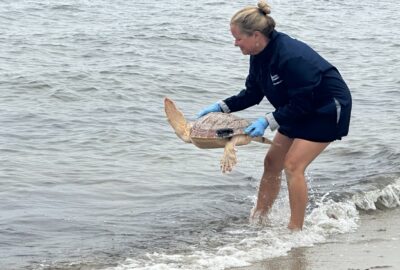Patient Stories from Our Sea Turtle Hospital: Hercules and Athena
Every year, the New England Aquarium rehabilitates and releases hundreds of endangered sea turtles. Meet two of them!
By New England Aquarium on Wednesday, May 21, 2025

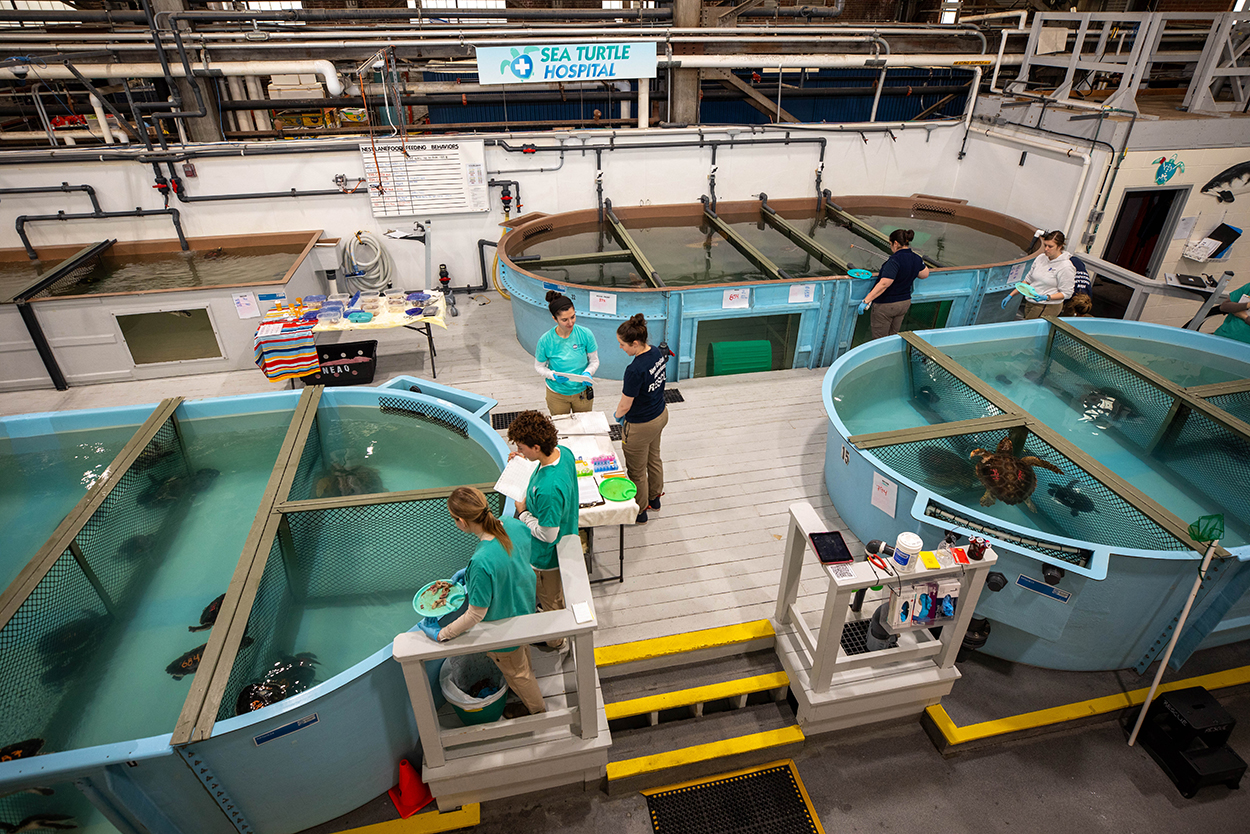
Every year, the New England Aquarium rehabilitates and releases hundreds of endangered sea turtles. Meet two of them!
For more than 25 years, the New England Aquarium has partnered with Mass Audubon’s Wellfleet Bay Wildlife Sanctuary to rescue endangered sea turtles who have been cold-stunned—a life-threatening form of hypothermia—on Cape Cod.
These turtles are brought to the Sea Turtle Rescue Hospital at the Aquarium’s Animal Care Center in Quincy, Massachusetts, where our Rescue team works diligently to rehabilitate the surviving turtles until they are healthy enough to be released back into the ocean.
Six of the seven species of sea turtles are endangered, and Kemp’s ridley sea turtles, the smallest marine turtles and the most endangered, make up the majority of turtles in our Sea Turtle Hospital. Conservation efforts for these turtles aim to give their populations a better chance to rebound.
Our staff, volunteers, and interns name the turtles in long-term rehab. This year’s theme: Greek mythology! Here, meet Hercules and Athena, two of the Sea Turtle Hospital patients currently working their way toward recovery.
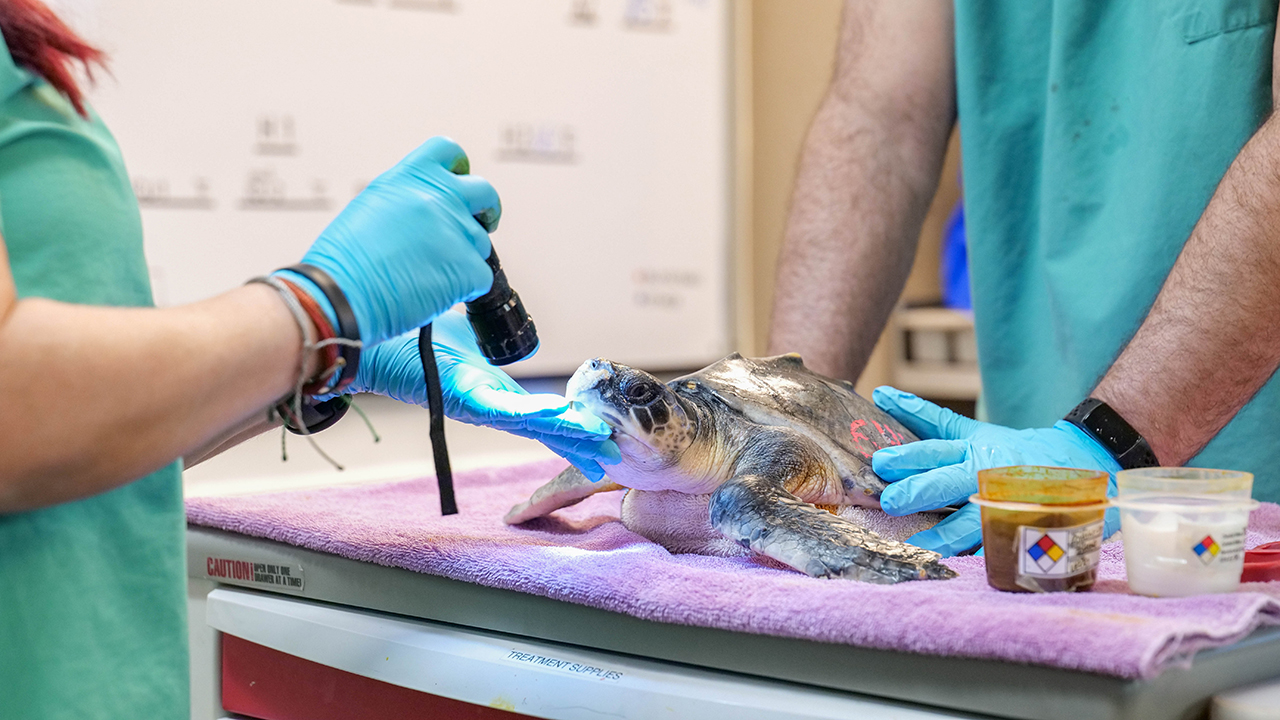
Hercules, Kemp’s Ridley
In the fall of 2024, Hercules was found upside down and half buried in the sand on Skaket Beach in Orleans, Massachusetts. Like many juvenile sea turtles in New England, this Kemp’s ridley was cold-stunned after getting stuck in the Cape’s cooling waters late in the fall.
Hercules arrived at the Sea Turtle Rescue Hospital on December 6. Our Rescue team slowly warmed the turtle and began offering food once they were at normal temperature. Hercules was slow to show interest in eating on their own, even when presented with low-calorie turtle favorites like shrimp and clams, and required tube feeds in order to receive proper nutrition.
“Once they’re showing interest in eating again, we’ll switch to herring and squid, because those have more calories and are better for weight gain,” said Kristen Luise, a senior biologist at the Aquarium.
While Hercules’ metabolism and appetite improved over the following weeks, their front left flipper developed pronounced swelling. Veterinarians sampled tissue from the swollen flipper and diagnosed Hercules with Serratia and Streptococcus, bacterial infections. Turtles’ immune systems slow down and become compromised when cold-stunned, making them more susceptible to infections like these. Hercules required a surgical joint debridement, a procedure to remove tissue and bone damaged by the infection.
Several months after the surgery, Hercules is doing much better. The surgical site is healing and their ability to use the affected flipper has greatly improved.
Still, our Rescue team is watching Hercules closely. Turtles who have had joint debridement surgeries and complex infections like this may need longer rehabilitation than most cold-stunned turtles. Though the path to release for Hercules could take more time, it remains the ultimate goal.
“The flipper usage continues to improve, and overall, Hercules swims normally and has a decent appetite,” Kristen noted.
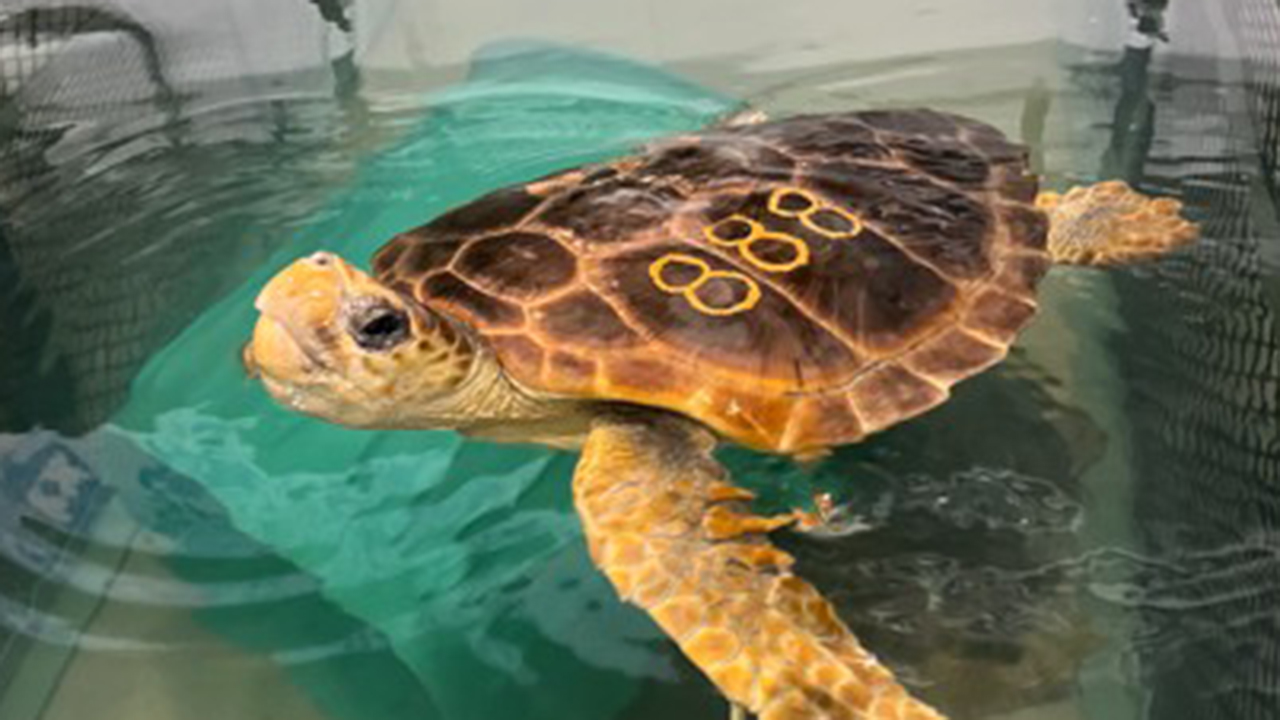
Athena, Loggerhead
Rescued from the Upper Cape’s Great Hollow Beach in Truro, Athena arrived at the Sea Turtle Rescue Hospital showing signs of severe pneumonia and prolonged anorexia.
“It’s not uncommon for loggerheads to be a little bit slower to start eating again. But this one was more prolonged than what we typically see,” Kristen said. “We got a little more worried about what’s going on internally, and seeing that [Athena] had such bad pneumonia too, that raised more flags.”
The Rescue team brought Athena to the Massachusetts Veterinary Referral Hospital in Woburn, where radiologists used a specialized CT scan machine to look for internal issues. The scans came back relatively normal, and when Athena returned to the Sea Turtle Hospital, she started eating!
Pneumonia is very common in cold-stunned turtles, and veterinarians use diagnostic tests like bronchoscopies and tracheal washes to assess severity and determine the best antibiotics for treatment. They use X-rays to monitor changes in the turtles’ lungs.
Today, Athena is doing well. The turtle’s appetite has remained steady, their lungs are clear, and they enjoy resting on the bottom of the recovery tank and hiding their head in various enrichment objects.
“In the wild, loggerheads will rest on the bottom of the ocean floor and stick their heads under rocks and in crevices,” Kristen said. “This enrichment helps to encourage natural behaviors and minimize stress.”
As Athena continues to improve, the plan is to release her this summer. The turtle may even be one that Aquarium researchers outfit with satellite or acoustic tags so that we can track their movements in the ocean and learn more about where the species travels and how they use different habitats.
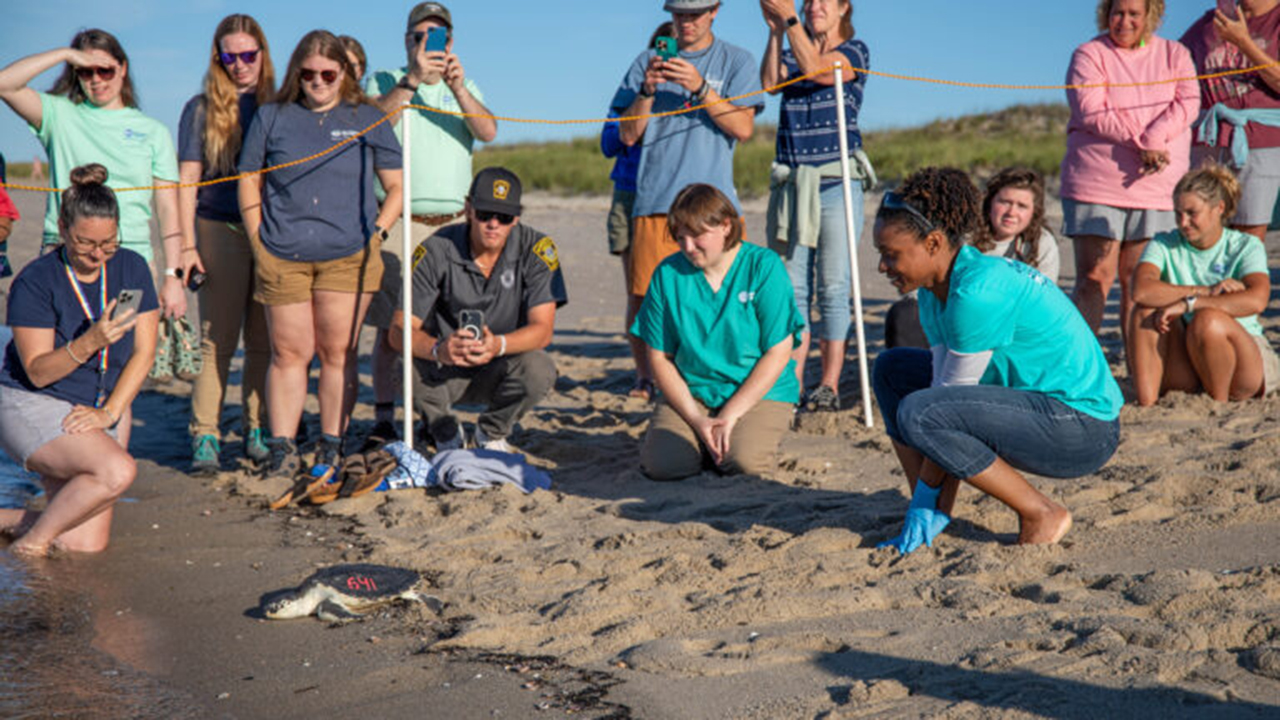
Summer release update
After months of recovery at the Sea Turtle Hospital, both Athena and Hercules made it back to the ocean this summer! Athena was part of the first group of 17 turtles that were released this season in late June. Hercules followed a few weeks later, swimming off into the waters of Nantucket Sound as the crowd in attendance cheered.
“It’s a powerful reminder of the impact of this rescue and rehabilitation work,” said Adam Kennedy, Director of Rescue and Rehabilitation at the Aquarium. “We dedicate months to the turtles’ recovery and take pride in seeing them return to the waters off Cape Cod. Our conservation and research efforts are helping ensure these species remain part of our ocean for years to come.”
Hercules and Athena are just two of the 536 turtles who received treatment at the Sea Turtle Rescue Hospital in 2024. If you want to support the Aquarium’s turtle rescue and rehabilitation efforts, there are plenty of ways to get involved, including visiting the Aquarium. Be sure to stop by the Giant Ocean Tank, where you can see Carolina and Retread—two thriving former patients of the Sea Turtle Hospital!

